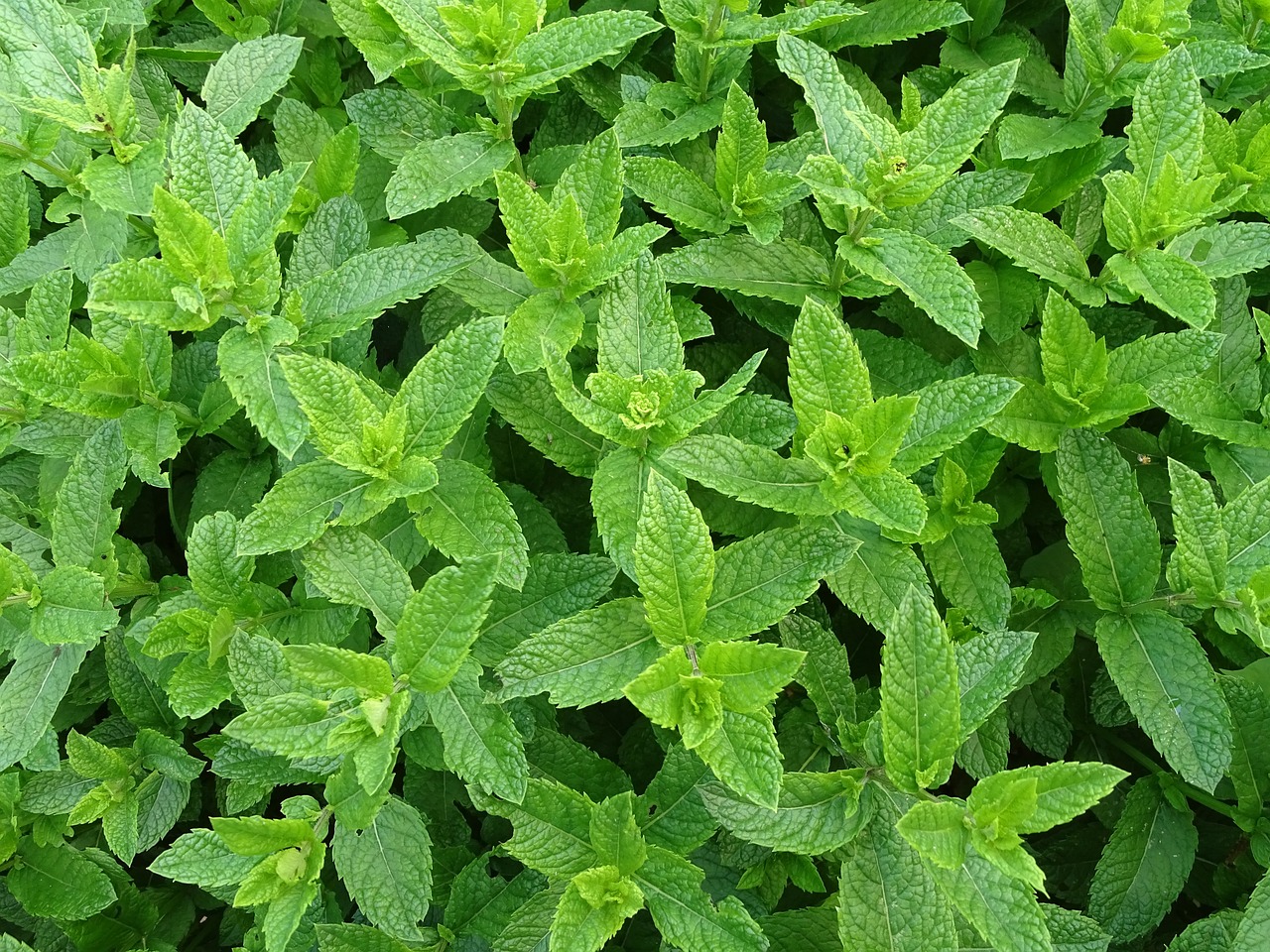Orange Mint
Overview
The Orange Mint plant, or Mentha x piperita f. citrata, is prized for its unique citrus aroma and is part of the diverse mint family. Widely used for flavor in food and beverages, it also carries traditional medicinal value. Though its refreshing taste is favored, there’s cautious note on its smoke inhalation effects as with other herbs.
Common name(s): Bergamot Mint, Eau De Cologne Mint
Scientific name: Mentha x piperita f. citrata

Characteristics
Known for its citrusy fragrance, medicinal properties, and antioxidant compounds.
Region
Commonly cultivated in temperate regions and adaptable to a variety of climates and soils.
Natural Habitat
Typically found in moist environments such as stream banks and wetlands.
Cultivation
Prefers full sun to partial shade, regular watering without waterlogging, and well-drained, fertile soil.
Traditional Usage
The Orange Mint herb has been embraced in traditional practices for its range of beneficial properties.
– People have found it useful for soothing stomach aches and chest pains, reflecting its significance in home remedies across cultures.
– Its vibrant scent has made it an effective option for freshening breath naturally.
– Moreover, Orange Mint has historically been applied to the skin for its purported ability to heighten strength.
– Beyond personal care, it has been leveraged as a natural insect repellent.
Cultivating an understanding of how Orange Mint can be used at home encourages a deeper appreciation for this fragrant, versatile plant.
Historical Usage
Employed since ancient times for its medicinal properties to enhance strength, treat digestive issues, and serve as a natural repellent.
Common Usage
Commonly used as a culinary flavoring and in aromatherapy products.
Effects
Orange Mint, known for its fragrant citrus scent, offers various properties that contribute to its utilization in different areas. Among these are the soothing effects it has when used in traditional remedies, particularly for the gastrointestinal system. Orange Mint may be beneficial for managing digestive discomfort and aiding in overall digestive health.
Here are some of the prominent effects of Orange Mint:
- Acts as a digestive aid, potentially easing symptoms like indigestion and bloating.
- Contains antioxidant properties, which can help protect cells from damage by free radicals.
- May provide neuroprotective benefits due to the presence of essential oils2.
- Shows promise in potentially offering anticancer benefits as per animal studies2.
- Functions as a natural insect repellent, keeping pests at bay without the use of synthetic chemicals.
- The essential oil component, particularly menthol, is responsible for the cooling sensation that can provide relief from minor aches.
While Orange Mint is enjoyed by many for its aroma and flavor, it should be noted that individual reactions can vary. A segment of the population may experience allergic reactions, which range in severity3. Always be mindful of personal sensitivities and consult a healthcare professional if unsure about the use of Orange Mint or its effects.
Effects when smoking
When considering the effects of smoking the pleasant-scented Orange Mint, the scientific research is sparse. However, known properties of the Mint family can offer some insights into what one might anticipate:
- Soothing for digestion: Like its relatives, Orange Mint may calm the stomach, potentially offering relief if you’re experiencing digestive discomfort.
- Cooling sensation: The presence of menthol might impart a cooling effect, which could prove refreshing to the throat and palate.
- Citrus undertones: Expect a unique twist on the classic mint flavor, thanks to its subtle orange zest notes.
- Aromatherapeutic benefits: The act of smoking may leverage the citrus-mint fragrance for a potentially relaxing aromatherapy experience.
However, caution is advised as smoking any herb involves inhaling combustion products, which may have unknown health risks. Always consider these points before deciding to smoke Orange Mint:
– Respiratory Health: Smoking plant material can pose risks to your lungs and overall respiratory health.
– Allergies: Be aware of possible allergic reactions, ranging from mild to severe 3.
Moreover, the absence of standardized dosage guidelines necessitates careful personal assessment prior to use. While it might enhance culinary experiences or offer therapeutic aroma, the implications of its smoked form should be approached with consideration for your health and local legal regulations.
Flavor Profile
Citrusy fragrance with classic mint and subtle orange zest notes.
Edible Parts
Leaves
Effects when Smoked
Limited data exists; smoking may introduce health risks from combustion byproducts.
User Experiences
User experiences vary, with some enjoying its refreshing citrus-mint taste in culinary uses and others seeking its purported soothing medicinal effects.
Medicinal Benefits
The Orange Mint herb has been cherished through time for more than its refreshing scent. Below are the potential medicinal benefits that have been associated with this aromatic plant:
- Rich in antioxidants: Key compounds found in Orange Mint, like flavonoids and phenolic acids, may offer antioxidant protection against cellular damage.
- May offer neuroprotective effects: Research indicates that constituents of mint may safeguard the nervous system.
- Anticancer properties: Certain components in Orange Mint could contribute to reducing cancer risk, although more studies are necessary to confirm these findings.
- Known to help soothe the gastrointestinal tract, which can be beneficial for people experiencing symptoms of irritable bowel syndrome.
While its use in aromatherapy and as a flavor enhancer in foods is widely accepted, when it comes to smoking Orange Mint, it is important to note that the scientific data is limited. Therefore, exercise caution and consider the potential respiratory risks associated with smoking plant matter2 3.
History and Folklore
Historically, mints, including Orange Mint, were valued for their medicinal properties. The Ancient Greeks believed in mint’s strength-enhancing abilities and used it to relieve stomach and chest discomfort. Across different cultures, Orange Mint served as a remedy for digestive problems, a breath freshener, and a way to ward off insects.
Different applications relied on mint’s aromatic qualities and perceived health benefits, and this practice has been passed down through the ages, cementing its reputation as a versatile and beneficial herb.1
Side Effects and Contraindications
- Side Effects: When consuming Orange Mint, some individuals may experience allergic reactions such as abdominal cramps. In extreme cases, this can escalate to anaphylaxis, a severe and potentially life-threatening condition.
- Contradictions: Smoking Orange Mint, like other plant materials, introduces the risk of inhaling combustion products, which could pose respiratory risks.
It’s advisable to be cautious and monitor for any adverse reactions, especially for those with known sensitivities to mint plants3.
Legal Status
The legality of the Orange Mint is quite straightforward: it is legal to grow, sell, and use in most parts of the world. That said, certain countries and regions might have different regulations. Therefore, it’s always advisable to check local laws to ensure compliance.
Just remember, while Orange Mint is commonly accepted for use, always staying informed about regional laws is key for responsible use.
References
1. Missouri Botanical Garden. “Mentha × piperita f. citrata – Plant Finder.” https://www.missouribotanicalgarden.org/PlantFinder/PlantFinderDetails.aspx?taxonid=250922
2. National Center for Biotechnology Information. “The Wonderful Activities of the Genus Mentha: Not Only Antioxidant Properties.” https://www.ncbi.nlm.nih.gov/pmc/articles/PMC7923432/
3. Wikipedia Contributors. “Mentha.” Wikipedia, The Free Encyclopedia. https://en.wikipedia.org/wiki/Mentha
Nicolas Duval
Nicolas is a passionate advocate for nature and the art of wildcrafting. His dedication shines through in Wildcraftia, a website he meticulously crafted to serve as a haven for nature enthusiasts worldwide. Driven by a deep appreciation for nature’s connection to humanity, Nicolas embarked on his journey in 2011 with SmokableHerbs, a platform showcasing his love for nature’s bounty. Building upon this foundation, he established Smokably, a thriving online store offering premium herbs and blends to a global audience.
